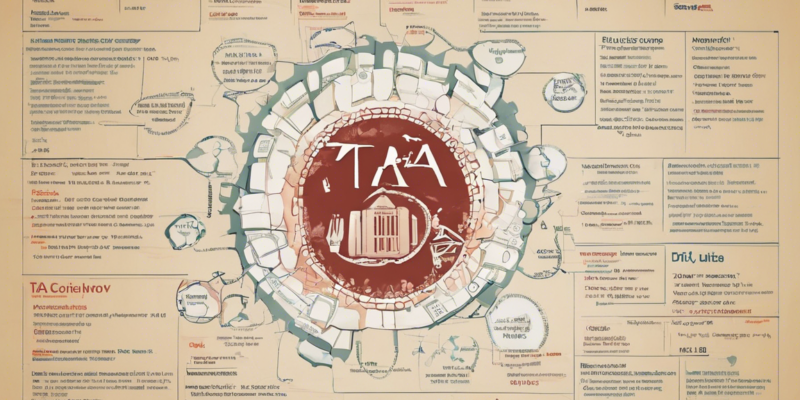
Understanding the TA Full Form: All You Need to Know!
Introduction
Whether you are a student, a teacher, an employer, or in any field where technology plays a crucial role, you may have come across the abbreviation “TA” and wondered what it stands for. In this comprehensive guide, we will delve into the full form of TA and explore its various meanings across different contexts. By the end of this article, you will have a clear understanding of what TA signifies in different fields and how it can be relevant to you.
What does TA stand for?
TA stands for teaching assistant in an educational setting, where a student or a professional assists a teacher or professor in various aspects of teaching and learning. TAs are commonly found in schools, colleges, and universities, where they support educators in tasks such as grading papers, leading discussions, and helping students understand course material.
Types of TAs in Education
-
Graduate Teaching Assistant (GTA): Typically a graduate student who assists professors with teaching undergraduate courses.
-
Undergraduate Teaching Assistant (UTA): An undergraduate student who aids faculty members or graduate TAs in teaching lower-level courses.
-
Research Assistant (RA): While not exactly a teaching assistant, an RA assists professors or researchers in conducting research and academic projects.
TA Full Form in Business
In a business context, TA can stand for technical analyst. A technical analyst is a professional who evaluates investments by analyzing statistics generated by market activity, mainly historical market data like price and volume. These individuals use charts and other tools to identify patterns that can help predict future price movements of stocks, currencies, commodities, and other financial instruments.
Responsibilities of a Technical Analyst
- Analyzing historical data to forecast future price trends.
- Identifying support and resistance levels on charts.
- Making buy or sell recommendations based on technical analysis.
- Monitoring market trends and economic indicators affecting investments.
TA Meaning in Technology
When it comes to technology, TA stands for technical architect. A technical architect is a senior role in IT that focuses on the design and implementation of complex technical solutions. Technical architects work closely with clients, developers, and other stakeholders to ensure that the technology solutions meet the organization’s needs and align with its overall business goals.
Skills and Qualifications of a Technical Architect
- In-depth knowledge of software development methodologies and technologies.
- Experience in system design, integration, and implementation.
- Strong communication and problem-solving skills.
- Leadership abilities to guide development teams and make strategic decisions.
FAQs – Frequently Asked Questions
- What is the difference between a teaching assistant (TA) and a research assistant (RA)?
-
A teaching assistant assists with teaching and educational tasks, while a research assistant aids in academic research and projects.
-
Can undergraduate students be teaching assistants?
-
Yes, undergraduate students can serve as teaching assistants, typically in lower-level courses under the supervision of faculty or graduate TAs.
-
What is the role of a technical analyst in the financial industry?
-
A technical analyst analyzes market data to forecast price movements of financial instruments like stocks, currencies, and commodities.
-
How does a technical architect differ from a software developer?
-
A technical architect focuses on designing complex technical solutions and aligning them with business goals, whereas a software developer primarily works on coding and programming tasks.
-
What qualifications are required to become a technical architect?
- To become a technical architect, one needs a strong background in IT, expertise in software development, leadership skills, and the ability to design and implement technical solutions.
Conclusion
In conclusion, the term TA can have various meanings depending on the context in which it is used. Whether it refers to a teaching assistant in education, a technical analyst in finance, or a technical architect in technology, TAs play crucial roles in their respective fields. Understanding the significance of TA in different contexts can help individuals navigate and excel in their educational, professional, or technological endeavors.



